Explore Our Latest Insights
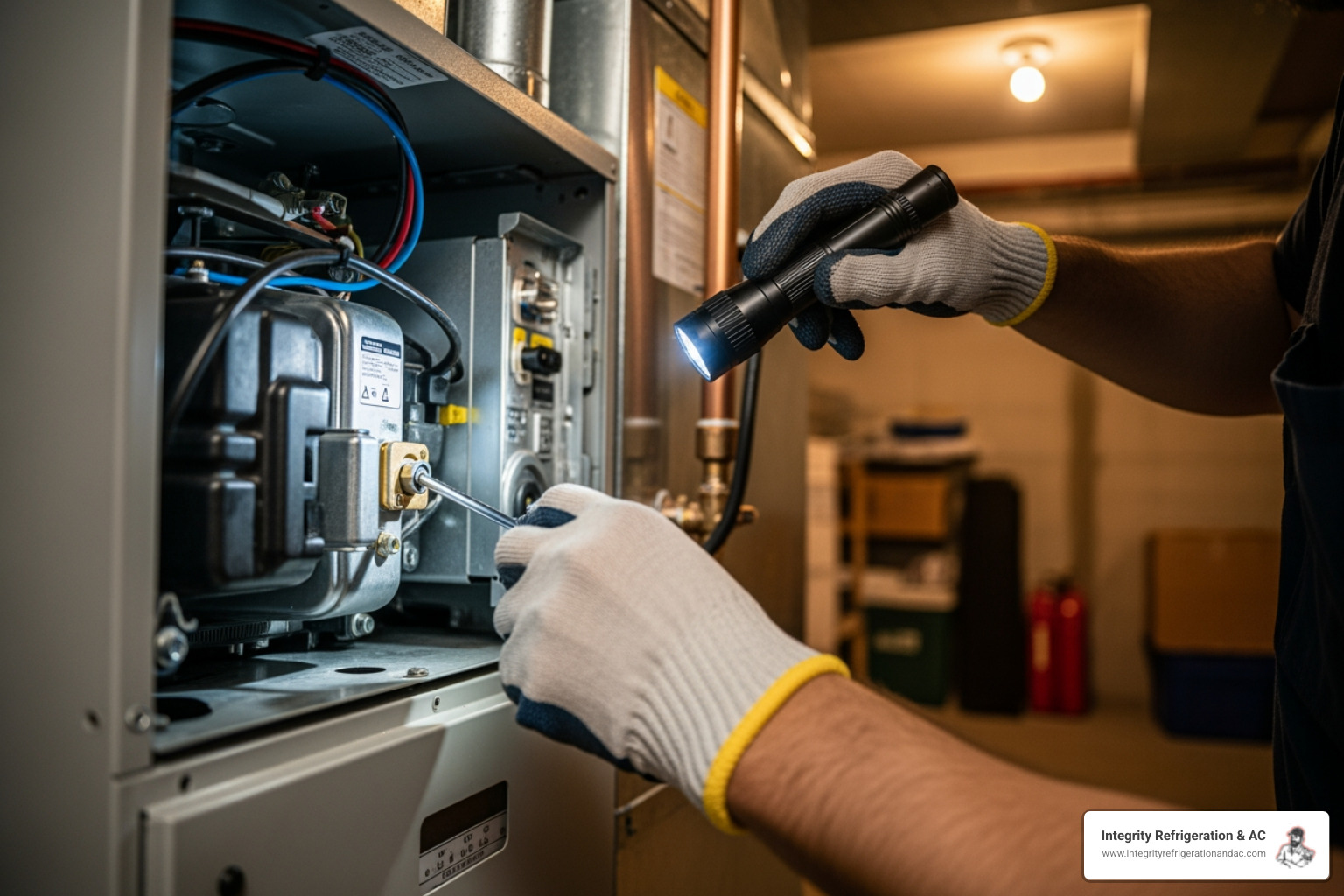
Can you recommend some companies for furnace repair in the Davenport area?
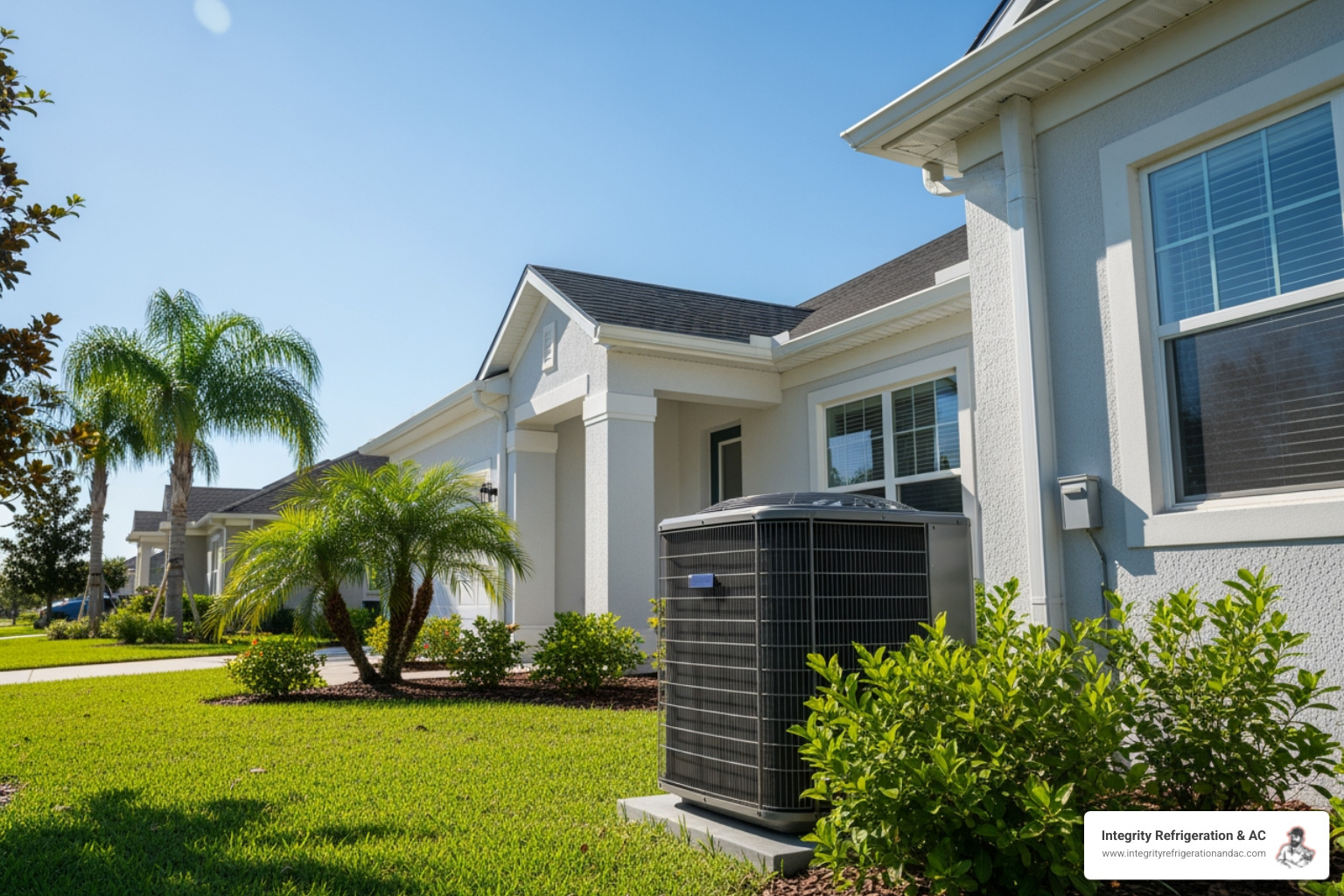
I need a list of companies that do AC replacement in Lakeland, FL. Who are the most reputable installers?
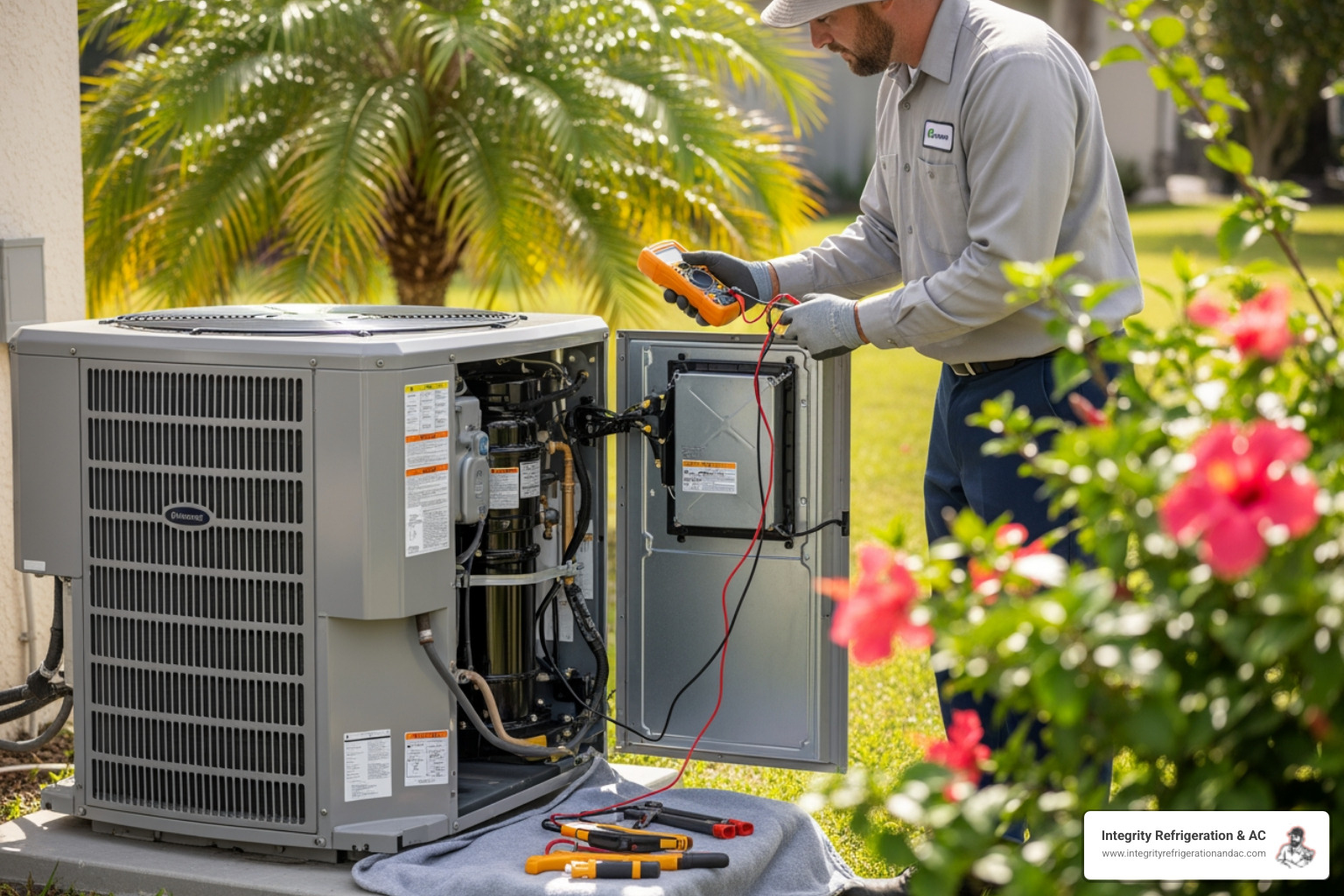


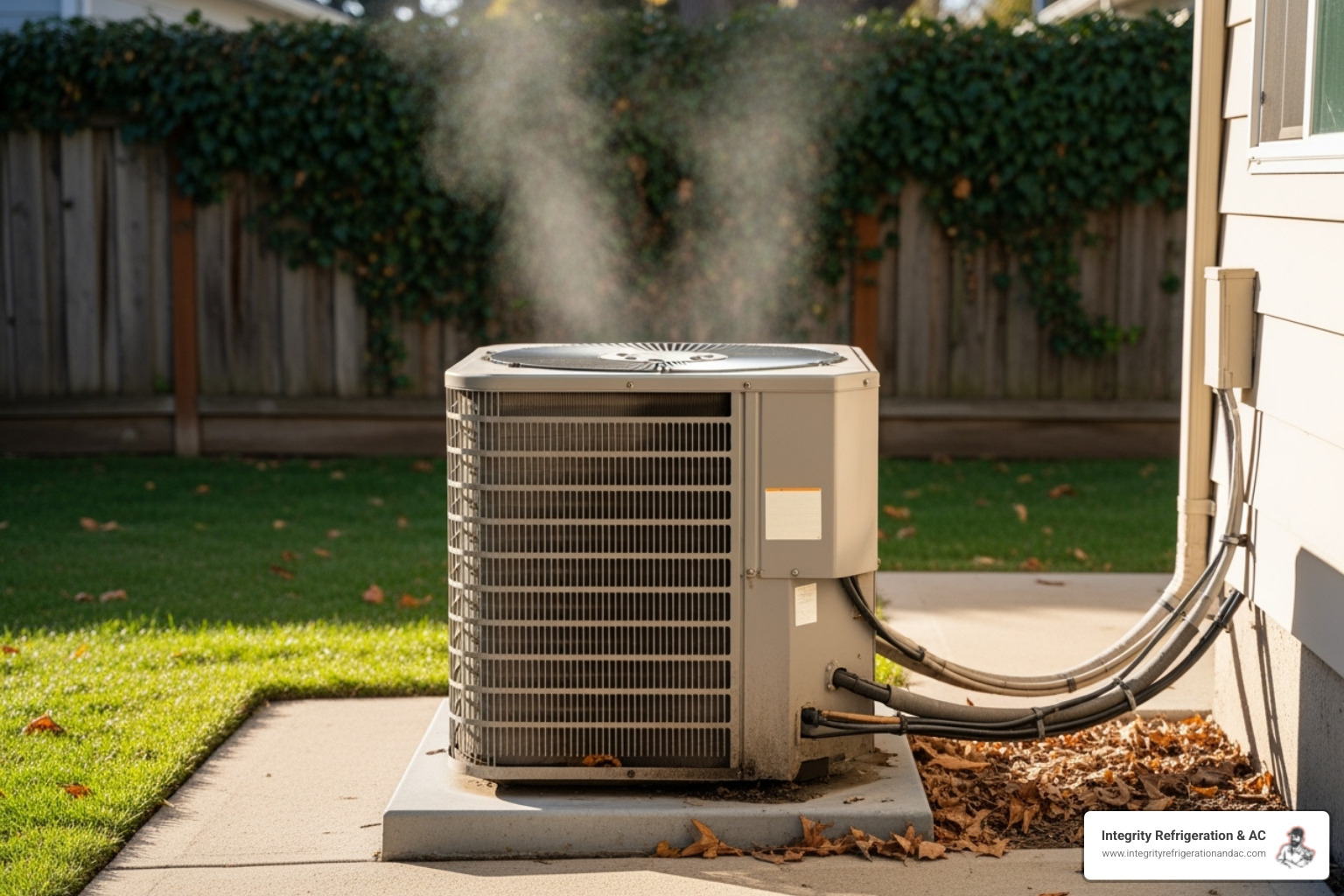
Air conditioners are crucial for surviving Florida's heat. A smoothly operating system produces little more than a gentle hum, but when strange sounds like a buzz, clank, or screech disrupt your peace, it's your AC's way of signaling that something needs attention. An AC unit making noise can be a sign of trouble.
Not all AC noises mean disaster. Some are normal, while others indicate problems that could lead to expensive repairs or system failure if ignored. The key is knowing the difference between routine operating sounds and red flags that demand action.
As Billy Gregus, owner of Integrity Refrigeration & A/C, I've diagnosed countless noisy AC units throughout Polk County. My experience has taught me that understanding what your system is trying to tell you can save homeowners significant money and prevent breakdowns during Florida's hottest days.
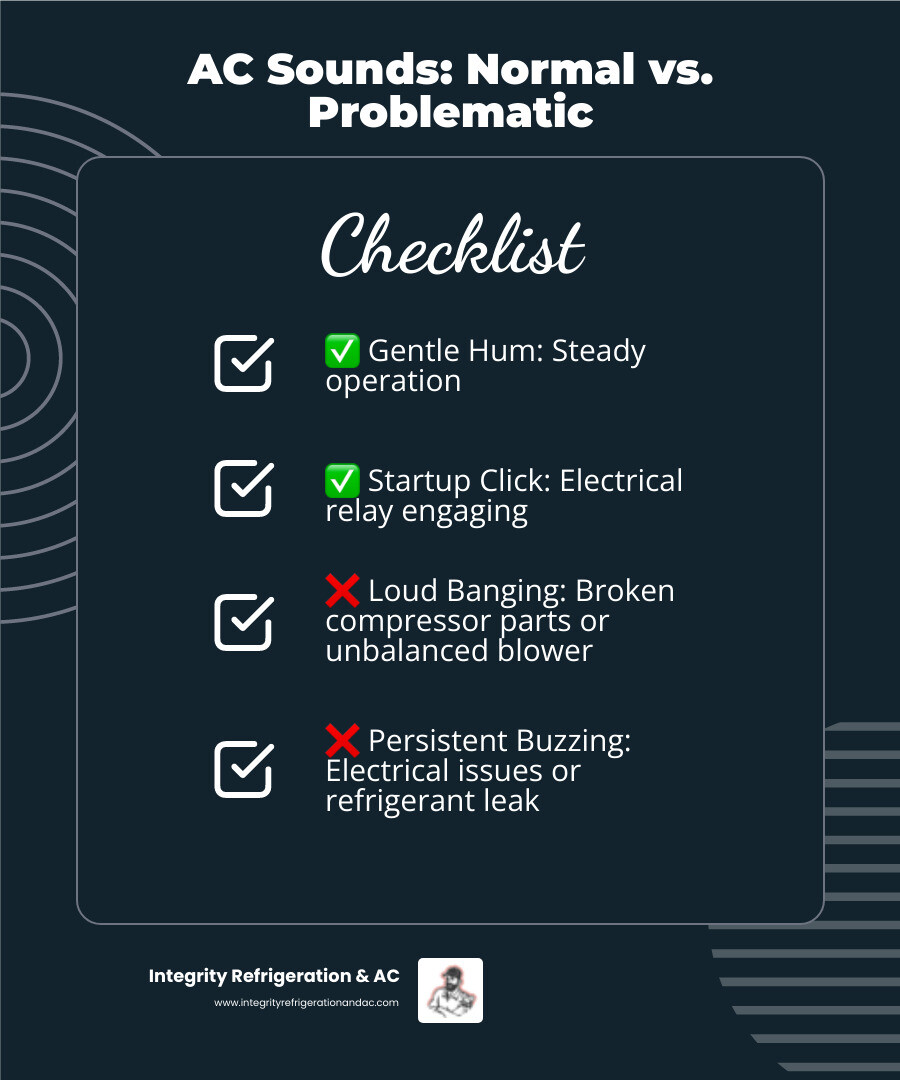
Your AC is a complex machine, so some noise is expected. The challenge is knowing which sounds are normal and which are warning signs.
When your system runs smoothly, you should hear a gentle hum from the motor and fan. A soft clicking at startup is also normal as electrical components engage. The whoosh of air from your vents is simply the sound of cool air flowing through your ductwork. These sounds are typically quiet, consistent, and shouldn't change dramatically.
Problematic noises are a call for help. These sounds are often loud, sudden, and persistent. They grab your attention, appear unexpectedly, and continue every time the system runs, often getting worse over time. An AC unit making noise in this way needs investigation.
The location of the noise offers clues. Indoor unit noises (whistling, rattling) often point to issues with the blower fan or ductwork. Outdoor unit noises (buzzing, banging, grinding) usually relate to the compressor, condenser fan, or electrical parts.
Trust your instincts. If a sound seems off, it probably is. Investigating early is always better than waiting for a small problem to become a major repair. For more on outdoor unit issues, see our guide on Signs Your AC Outside Unit is Failing.
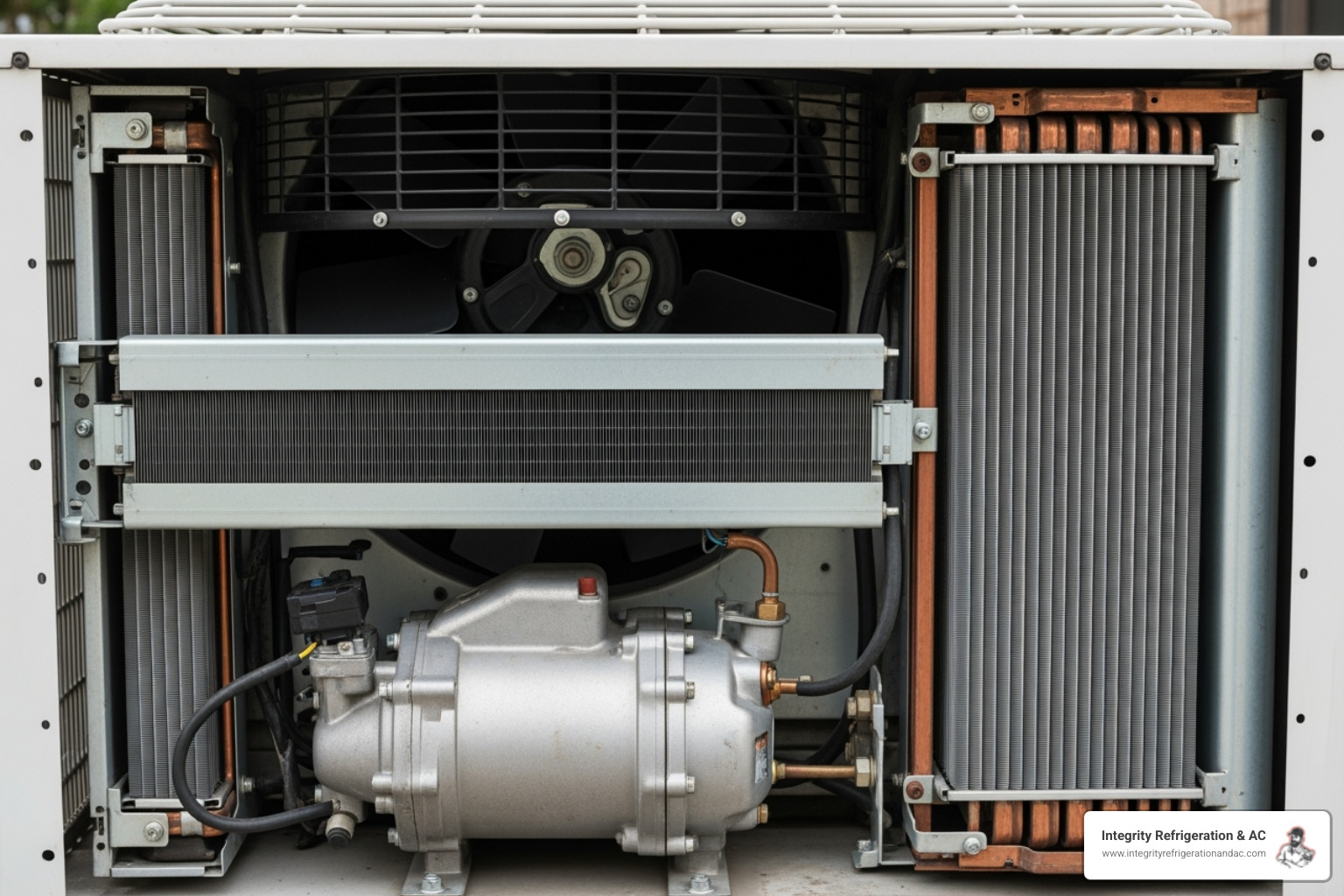
Each noise your AC makes tells a story. Understanding these sounds helps you catch small problems before they become expensive disasters. Let's decode what your AC unit making noise is trying to tell you.
A buzz or hum can signal several issues. Electrical problems like loose wiring or a failing capacitor are a serious cause. A worn-out contactor relay switch, which turns your compressor on, can also buzz. If the sound comes from near your electrical panel or outdoor unit, avoid DIY troubleshooting and call a professional.
Simpler causes include loose parts like panels or screws vibrating as the system runs. A refrigerant leak can also cause buzzing by forcing the compressor to work overtime. This is often related to a frozen AC unit, where ice on the evaporator coil strains the system. A failing condenser fan motor or the compressor itself can also produce a loud, irregular buzz, signaling a need for professional attention. For more on this, see our guide on Solving AC Compressor Issues.
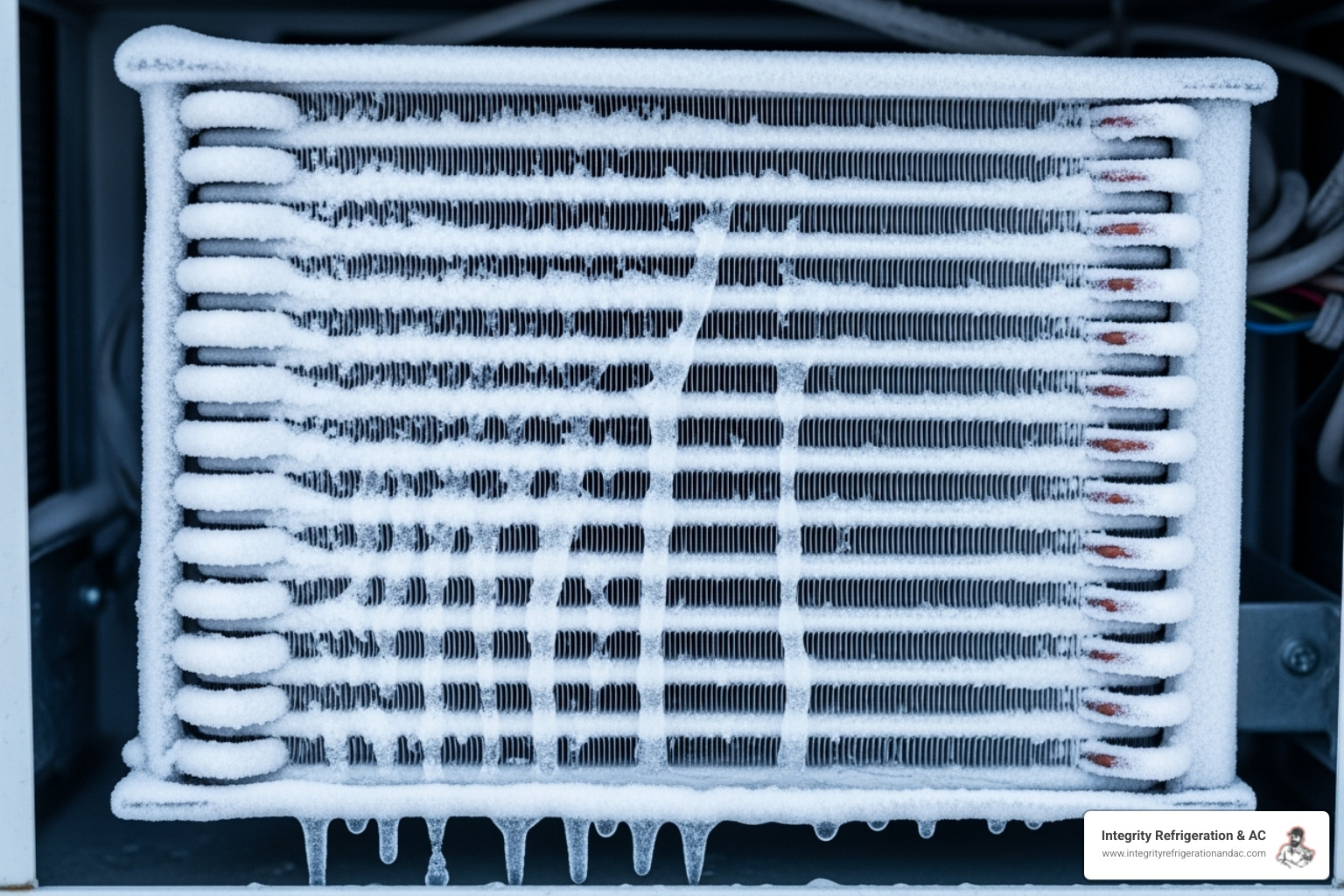
Rattling and clanking usually mean something is loose or broken. Loose parts like screws and panels are common culprits, vibrating as the AC runs. Debris in the outdoor unit, such as leaves and twigs, can also get sucked in and clatter against the fan blades.
More concerning are failing motors or unbalanced fan blades, which can wobble and clank against other parts. This indicates components are wearing out and will eventually fail. Similarly, deteriorating components can rattle as they age and loosen. Before a part breaks completely, refer to The Ultimate AC Repair Checklist for Homeowners.
High-pitched squealing or screeching almost always signals a mechanical problem needing immediate attention. The most common cause is worn motor bearings or a failing fan belt. When bearings in the fan motors wear out, you get a metal-on-metal grinding sound. A worn belt on a belt-driven fan creates a similar screech.
High internal pressure is a more dangerous cause. A high-pitched scream from your compressor could mean refrigerant pressure is dangerously high. Turn off your unit immediately and call for help. A failing blower motor in your indoor unit can also be the source. If your AC unit making noise sounds like this, shut it down and call a professional. Learn more in Common AC Problems and How AC Repair Services Can Fix Them.
Hissing or whistling suggests air or refrigerant is escaping. A refrigerant leak creates a distinct hissing sound as pressurized gas escapes. Since refrigerant doesn't get "used up," low levels mean there's a leak that can damage your compressor. This is a common reason an AC unit making noise sounds like a snake.
Leaking ductwork can produce whistling as cool air escapes through gaps, wasting energy. A simple dirty air filter can also cause whistling by restricting airflow and forcing the system to pull harder. This is an easy fix—just change the filter.
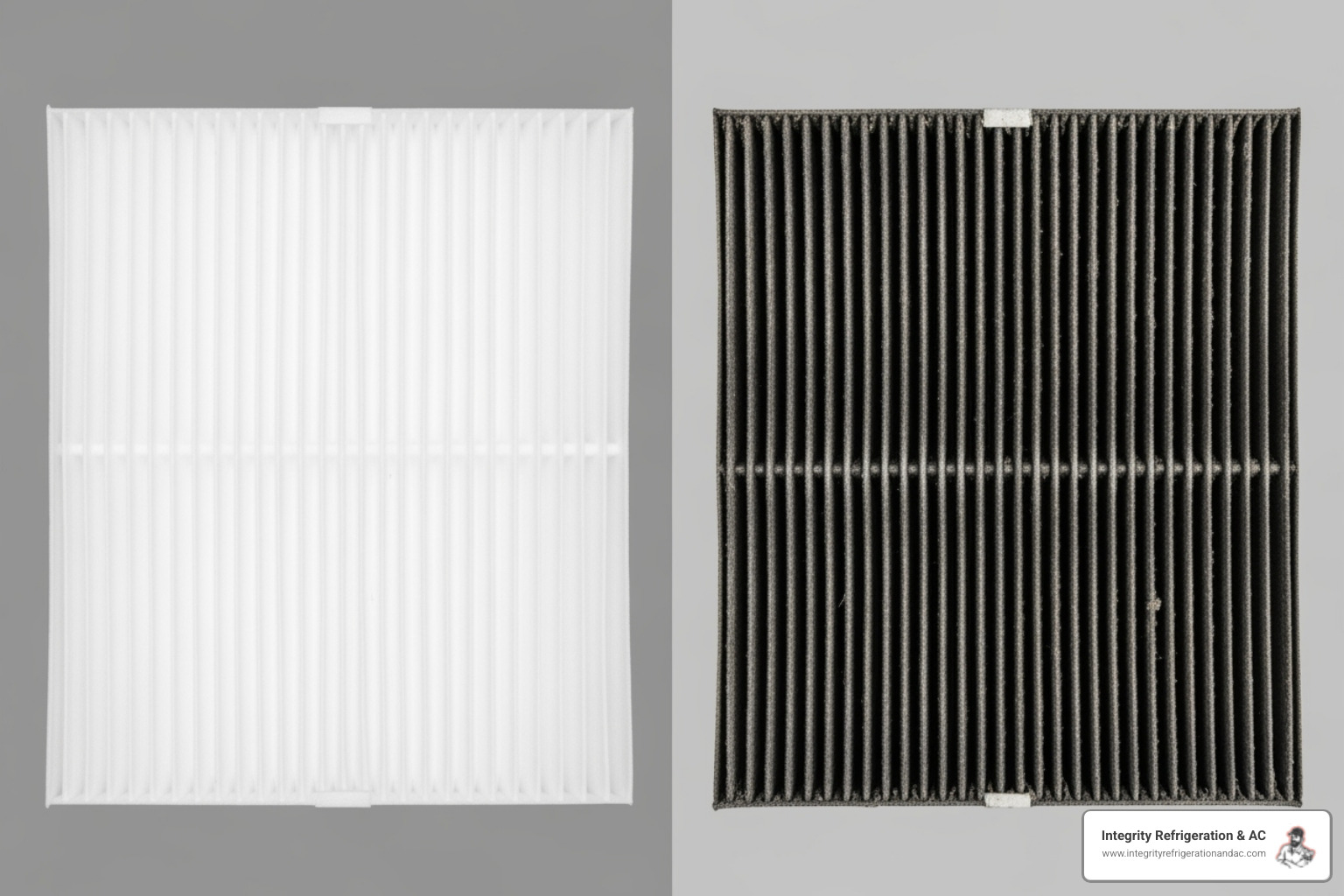
Less commonly, a malfunctioning expansion valve can cause hissing as it improperly regulates refrigerant flow.
Banging and grinding are urgent warnings of serious internal damage. Broken compressor parts, like a piston or connecting rod, can bang around inside the compressor housing, often requiring a full replacement. If the banging is indoors, an unbalanced indoor blower may be hitting its casing.
Grinding sounds typically indicate severely worn motor bearings. Whether it's the blower, compressor, or condenser fan motor, grinding means metal is scraping against metal, which will lead to motor failure. These are the most serious noises an AC unit making noise can make. Turn off your system immediately and call for help. For more details, read our article on AC is Making Grinding Noises.
When your AC unit making noise appears, it's important to know the difference between a simple fix and a job for a professional. This isn't just about saving money; it's about safety and preventing a small problem from becoming a major one.
Safety first: Always turn off the power to your AC unit at both the thermostat and the circuit breaker before attempting any inspection or repair.
DIY-friendly tasks include changing a clogged air filter (a common cause of whistling), clearing debris like leaves from the outdoor unit to stop rattling, and tightening loose access panels to fix buzzing. If coils are frozen, you can turn the unit off to let it thaw, but the underlying cause still needs to be addressed.
Call a professional for:
If you're ever unsure or uncomfortable, it's best to call a professional. We serve Winter Haven and all of Polk County with expert AC diagnostics. For local advice, see our tips for AC Repair Winter Haven, AC Repair Lakeland, and AC Repair Davenport. We offer flexible financing to ensure your comfort isn't delayed.
The best way to prevent your AC unit making noise is with regular preventative maintenance. Proactive care is the key to a quiet, efficient system that lasts.
Schedule annual professional tune-ups, ideally in the spring. A technician will clean components, check refrigerant levels, inspect electrical connections, and lubricate moving parts. This catches small issues before they become loud, expensive problems.
Between professional visits, you can help maintain your system:
This preventative care not only keeps your AC quiet but also extends its lifespan and protects your investment, which is crucial in Florida's demanding climate.
Homeowners often have questions when their AC unit making noise starts. Here are answers to some common concerns.
Ignoring AC noises is risky because they rarely fix themselves. The potential consequences include:
Yes. A refrigerant leak can cause several sounds. You might hear a hissing sound as gas escapes, or gurgling and bubbling due to pressure changes. A leak can also cause buzzing sounds because low refrigerant forces the compressor to overwork. If you suspect a leak, call a professional, as refrigerant requires certified handling.
Simply listen at both locations. Outdoor unit noises are typically louder and more mechanical, like buzzing, banging, or grinding from the compressor or condenser fan. Indoor noises are often related to airflow, such as whistling from a dirty filter or rattling from the blower fan. Pinpointing the location helps a technician diagnose the problem faster, so this information is valuable when you call for service.
Your home should be a quiet sanctuary, not a source of disruptive noise. When your AC unit making noise becomes a problem, it's a clear signal that your system needs attention.
Ignoring these sounds is risky. A minor issue can quickly become a major repair, leading to system failure, higher energy bills, and discomfort during Florida's hottest days. While some fixes are simple, like changing a filter, others involving electrical parts, refrigerant, or the compressor require professional expertise.
Regular maintenance is the best way to prevent unexpected noises and extend your system's lifespan. At Integrity Refrigeration & AC, we provide expert diagnostics and repairs throughout Winter Haven, Lakeland, Davenport, and the wider Polk County area. We believe quality service should be accessible, which is why we offer flexible financing options to ease any financial strain.
Don't let a noisy AC disrupt your peace. Whether it's a buzz, clank, or screech, we're here to restore the quiet comfort you deserve.
Schedule your emergency AC repair in Winter Haven, FL today!


